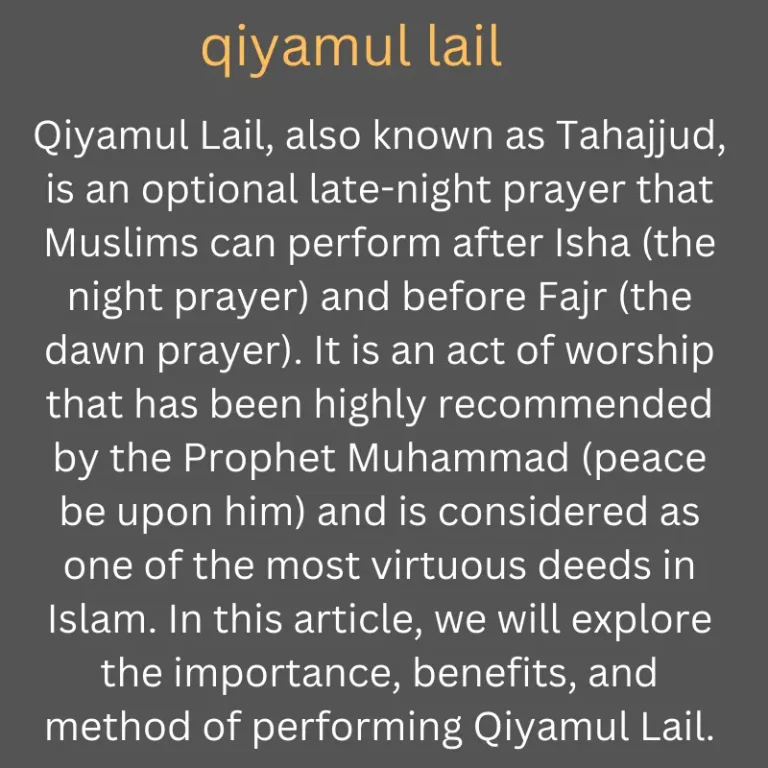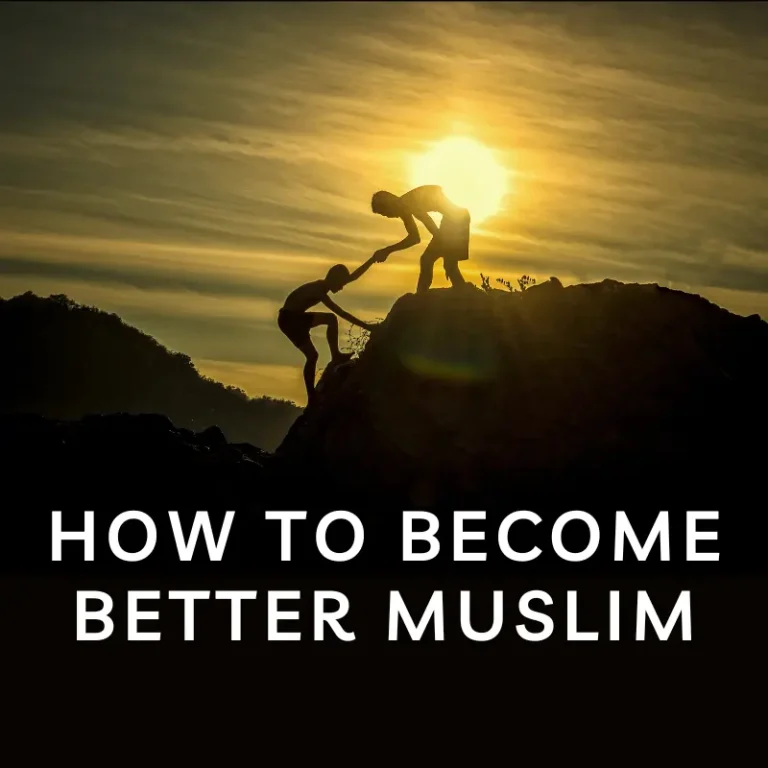Best Deeds In The Eyes Of Allah (Comprehensive List)
In Islam, performing good deeds is an essential aspect of leading a righteous life. Muslims strive to please Allah by engaging in actions that are pleasing to Him. These good deeds not only benefit the individual but also contribute to the betterment of society. This article explores a comprehensive list of the best deeds in the eyes of Allah, shedding light on the significance of each action and its rewards.
Importance of Best Deeds In The Eyes Of Allah
Before diving into specific deeds, it is crucial to understand the importance of good actions in Islam. Muslims believe that performing righteous deeds earns them rewards both in this life and in the hereafter. Good deeds are seen as a means of purifying the soul, seeking closeness to Allah, and attaining eternal bliss in Paradise.
Salah (Prayer)
Salah, the obligatory prayer, holds a central position in Islam. Muslims are required to perform five daily prayers, facing the Kaaba in Mecca. Prayer is a direct communication with Allah, expressing gratitude, seeking guidance, and seeking forgiveness. Regularly performing Salah demonstrates devotion and obedience to Allah.
Zakat (Charity)
Zakat is the act of giving a specific portion of one’s wealth to those in need. It is one of the five pillars of Islam. By giving Zakat, Muslims purify their wealth and demonstrate compassion towards the less fortunate. This act of charity promotes social justice, solidarity, and empathy within the community.
Fasting (Sawm)
Fasting during the month of Ramadan is obligatory for adult Muslims. It involves abstaining from food, drink, and other physical needs from dawn until sunset. Fasting teaches self-discipline, empathy for the poor, and gratitude for blessings. It is an act of worship that brings Muslims closer to Allah and strengthens their spirituality.
Hajj (Pilgrimage)
Hajj is the annual pilgrimage to the holy city of Mecca. It is a mandatory religious duty for Muslims who are physically and financially able to undertake the journey. Hajj symbolizes unity, equality, and devotion to Allah. By performing the rituals of Hajj, Muslims seek forgiveness, purify their souls, and strengthen their faith.
Kindness to Parents
Showing kindness and respect towards parents is highly valued in Islam. The Quran emphasizes the significance of maintaining good relations with parents and treating them with love, care, and compassion. Being dutiful to parents, fulfilling their needs, and seeking their happiness are considered virtuous acts that please Allah.
Upholding Family Ties
Maintaining strong bonds with relatives and extended family members is encouraged in Islam. Upholding family ties includes maintaining regular communication, offering support, resolving conflicts amicably, and being there for one another in times of need. Strengthening family relationships fosters harmony, love, and unity within the community.
Honesty and Truthfulness
Honesty and truthfulness are fundamental virtues in Islam. Muslims are enjoined to be truthful in their speech and actions, avoiding lies, deception, and false promises. Honesty is a quality that earns the pleasure of Allah and builds trust among individuals. It is a means of upholding justice and fostering ethical conduct in society.
Enjoining Good and Forbidding Evil
Muslims are encouraged to promote goodness and discourage evil within society. Enjoining good involves encouraging acts of kindness, justice, and righteousness. Forbidding evil entails speaking out against injustice, immorality, and wrongdoing. By actively engaging in this duty, Muslims contribute to the betterment of their communities and strive to establish a just society.
Seeking Knowledge
Acquiring knowledge is highly regarded in Islam. Muslims are encouraged to seek knowledge throughout their lives, both religious and worldly. Education and intellectual growth are seen as means to understand the world, fulfill responsibilities, and contribute positively to society. Seeking knowledge is an act of worship that brings Muslims closer to Allah and equips them to make informed decisions.
Helping Others and Volunteering
Helping those in need and engaging in acts of charity are praised in Islam. Muslims are encouraged to assist the poor, the orphaned, the sick, and the marginalized. Volunteering time, skills, and resources for the betterment of society is considered a noble deed that earns Allah’s pleasure. Helping others fosters empathy, compassion, and social cohesion.
Respecting Neighbors and Community
Islam places great importance on maintaining good relations with neighbors and the wider community. Respecting neighbors’ rights, offering assistance, and showing kindness are integral to Islamic teachings. By fostering harmonious relationships and being active members of their communities, Muslims contribute to social stability and unity.
Being Good to Animals and the Environment
Islam teaches Muslims to be mindful of their responsibilities towards the environment and all living creatures. Kindness towards animals, conservation of natural resources, and environmental protection are part of being good stewards of Allah’s creation. Treating animals with care and showing respect for the environment are acts that please Allah.
Engaging in the best deeds in the eyes of Allah is a cornerstone of a Muslim’s spiritual journey. From acts of worship like Salah and fasting to social responsibilities such as kindness to parents and helping others, Islam provides a comprehensive framework for leading a righteous life. By striving to excel in these deeds, Muslims seek to please Allah, purify their souls, and contribute to a just and compassionate society.
Are these deeds exclusive to Muslims?
No, while these deeds hold particular significance in Islam, many of them are universally valued and encouraged in various religions and ethical systems.
Do Muslims have to engage in all these deeds?
While Muslims are encouraged to engage in these deeds, the level of involvement may vary depending on individual circumstances and capabilities. The intention and sincerity behind the actions are crucial.
Are there any other good deeds in Islam not mentioned here?
Yes, Islam emphasizes numerous other good deeds, such as maintaining good character, showing gratitude, and fulfilling promises, among others.
What are the rewards for performing these deeds?
The rewards for performing these deeds are both in this life and in the hereafter. They include spiritual fulfillment, peace of mind, blessings, and ultimately, eternal bliss in Paradise.
Can non-Muslims engage in these deeds?
Yes, these deeds promote positive values and ethical conduct, making them beneficial for people of all backgrounds who seek to lead a virtuous life.








